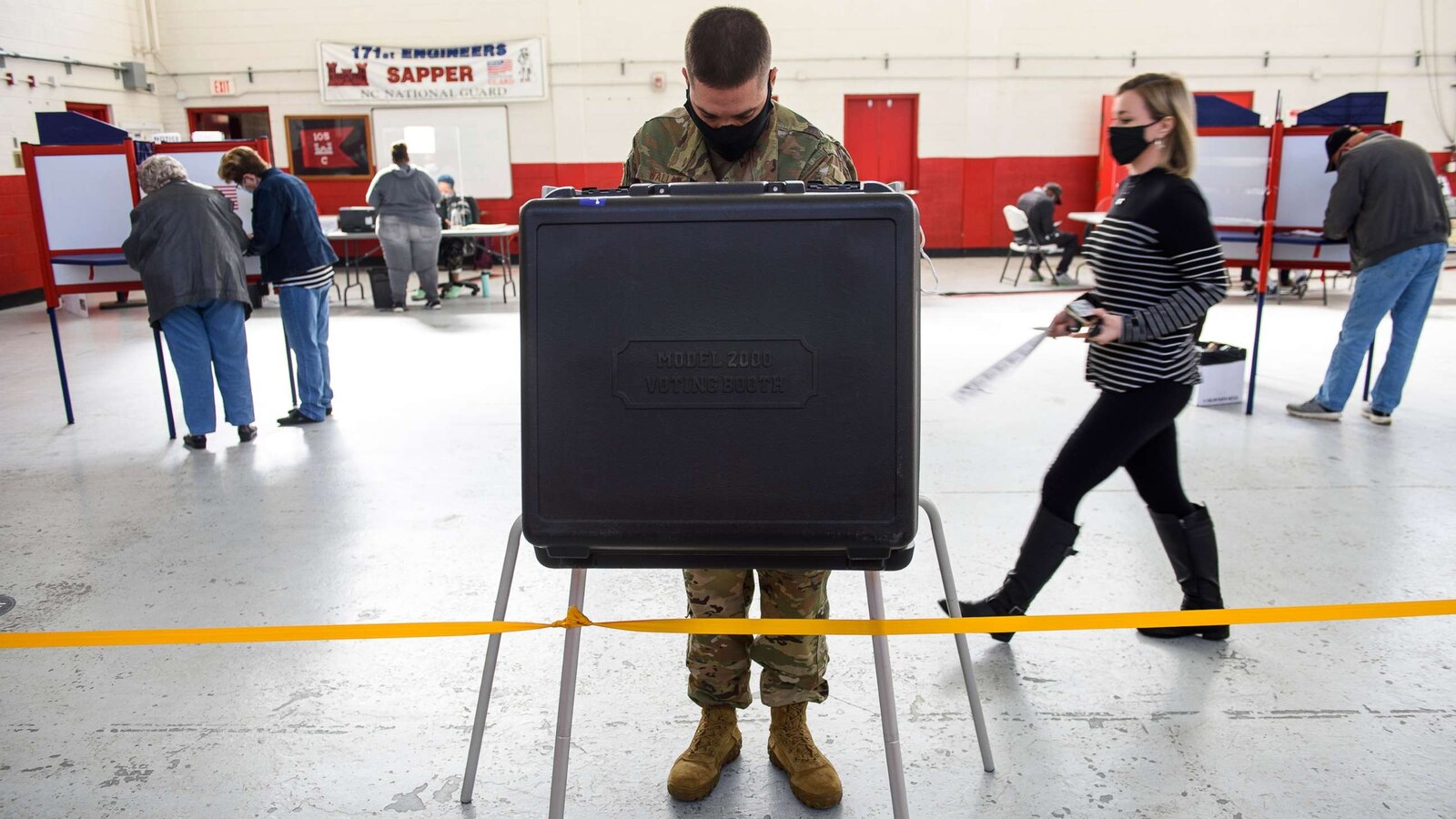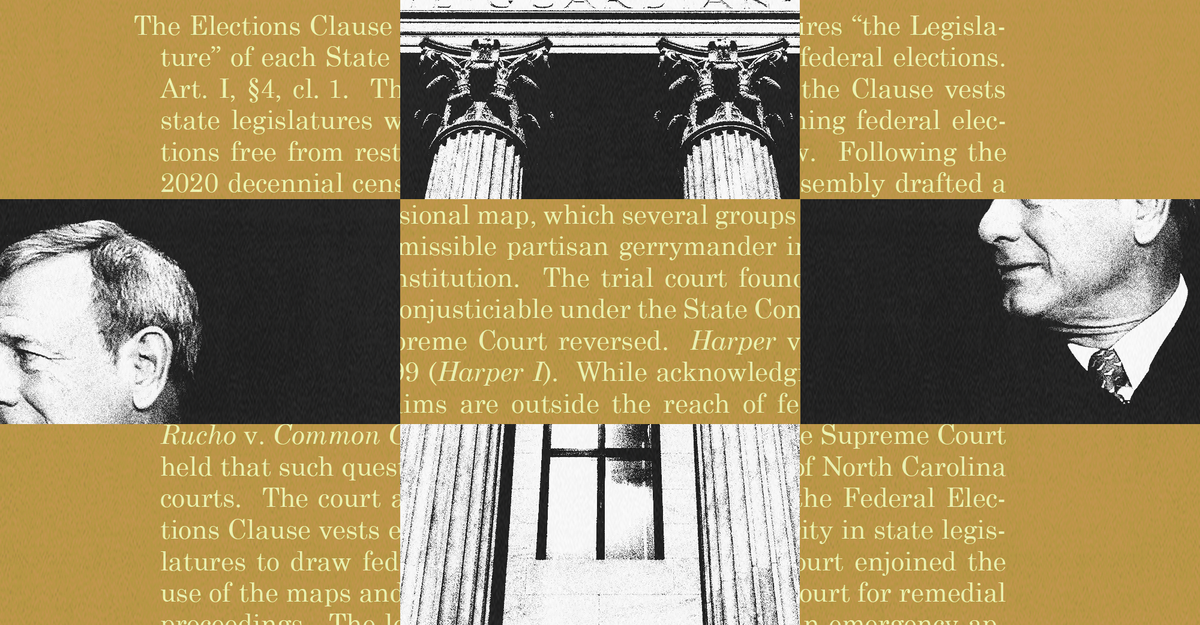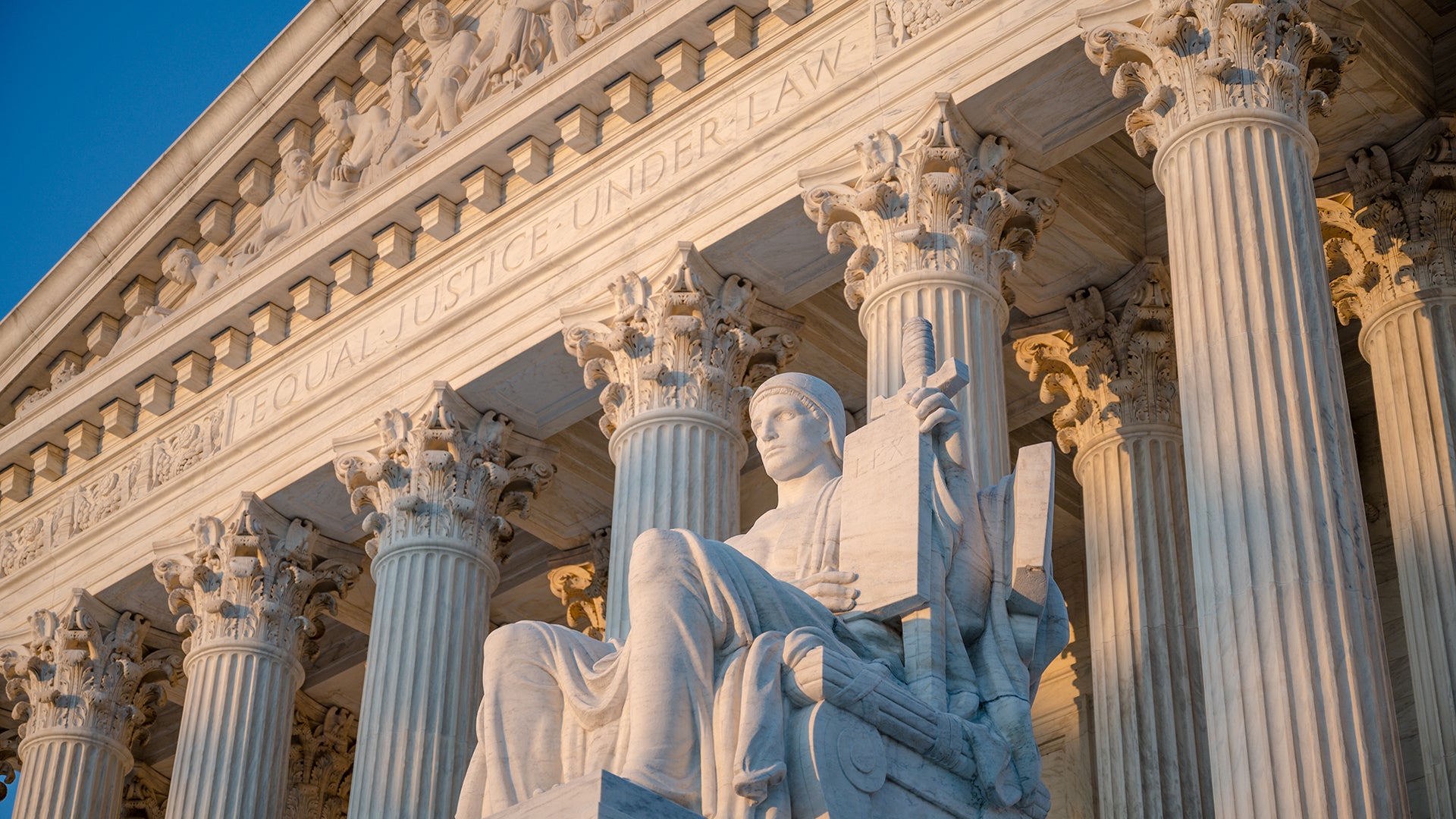superchuck500
U.S. Blues
Offline
In their boundless effort to disenfranchise voters and bring election results that they desire despite their minority status, conservatives have latched on to the independent state legislature theory - which basically holds that the Constitution at Article I Section 4 and Article II Section 1 vest state legislatures with exclusive authority to decide how (1) elections are to be run in the state, and (2) the 'electors' to the presidential electoral college.
In other words, the proponents of this theory assert that only the state houses can make these rules and decisions, and state governors and the state judicial system - including the states supreme courts - have no say in the matter. Years of precedent and legal scholarly writing hold to the contrary: these clauses refer to state lawmaking, including governor veto and state supreme court judicial review (for constitutionality). But with today's "hyper-originalist, textualist" Supreme Court, the door has been opened for this formerly "fringe theory" to become law in the United States . . . simply because the words of the text invite this interpretation despite all of the evidence that the founding fathers did not intend for such a literal reading.
In June 2022, the SCOTUS granted a writ to a challenge to North Carolina's supreme court's decision that a redistricting map from the North Carolina state legislature was "unconstitutional beyond a reasonable doubt" . . . and conservatives on the NC legislature argue that the state supreme court has no say in the matter (nor, ergo, does the state constitution). The Court will hear argument in the matter next session.

 www.brennancenter.org
www.brennancenter.org

 washingtonlawyer.dcbar.org
washingtonlawyer.dcbar.org

 abcnews.go.com
abcnews.go.com
In other words, the proponents of this theory assert that only the state houses can make these rules and decisions, and state governors and the state judicial system - including the states supreme courts - have no say in the matter. Years of precedent and legal scholarly writing hold to the contrary: these clauses refer to state lawmaking, including governor veto and state supreme court judicial review (for constitutionality). But with today's "hyper-originalist, textualist" Supreme Court, the door has been opened for this formerly "fringe theory" to become law in the United States . . . simply because the words of the text invite this interpretation despite all of the evidence that the founding fathers did not intend for such a literal reading.
In June 2022, the SCOTUS granted a writ to a challenge to North Carolina's supreme court's decision that a redistricting map from the North Carolina state legislature was "unconstitutional beyond a reasonable doubt" . . . and conservatives on the NC legislature argue that the state supreme court has no say in the matter (nor, ergo, does the state constitution). The Court will hear argument in the matter next session.
The dispute hinges on how to understand the word “legislature.” The long-running understanding is that it refers to each state’s general lawmaking processes, including all the normal procedures and limitations. So if a state constitution subjects legislation to being blocked by a governor’s veto or citizen referendum, election laws can be blocked via the same means. And state courts must ensure that laws for federal elections, like all laws, comply with their state constitutions.
Proponents of the independent state legislature theory reject this traditional reading, insisting that these clauses give state legislatures exclusive and near-absolute power to regulate federal elections. The result? When it comes to federal elections, legislators would be free to violate the state constitution and state courts couldn’t stop them.
Extreme versions of the theory would block legislatures from delegating their authority to officials like governors, secretaries of state, or election commissioners, who currently play important roles in administering elections.
Where did the independent state legislature theory come from?
Following the disputed 2000 election, Chief Justice William Rehnquist wrote a concurring opinion in Bush v. Gore proposing an embryonic version of the independent state legislature theory. He argued that the Constitution’s assignment of elections authority to state legislatures diminishes state judges’ power to alter “the general coherence of the legislative scheme.” This approach garnered little scrutiny outside academia at the time.
Fifteen years later, the idea was exhumed as part of an effort to dismantle Arizona’s independent redistricting commission. Again, the Supreme Court rejected the theory and let the commission continue its work.
Then, after the 2020 election, President Trump and his allies used the independent state legislature theory as part of their effort to overturn the results. For a third time, the Supreme Court declined to adopt the theory. But three sitting justices — Clarence Thomas, Samuel Alito, and Neil Gorsuch —endorsed it.
Most recently, gerrymanderers in North Carolina, Kansas, and beyond, have invoked the independent state legislature theory to try to block state courts from reviewing their maps. So far, the Supreme Court has not embraced it.

The ‘Independent State Legislature Theory,’ Explained
This dubious legal theory could have dramatic consequences for elections.

Washington Lawyer - September/October 2022
Experience our interactive, profoundly engaging digital publication!

What's at stake in Supreme Court battle over controversial legal theory about who controls elections
The “independent state legislature" theory, backed by conservatives, contends that state lawmakers have the ultimate power to regulate federal elections
Last edited:


